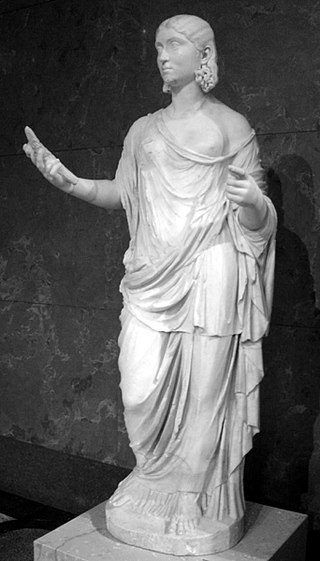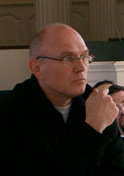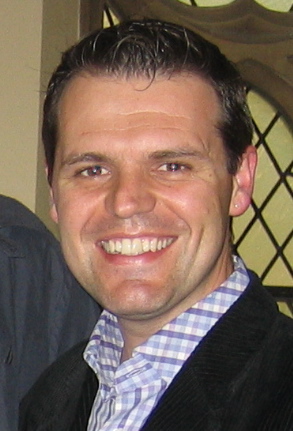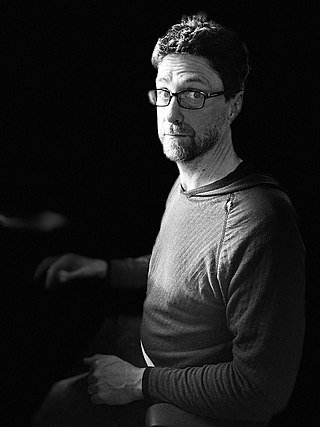Digital theology or cybertheology is the study of the relationship between theology and the digital technology.
| Part of a series on the |
| History of Christian theology |
|---|
 |
| |
Digital theology or cybertheology is the study of the relationship between theology and the digital technology.
In Catholic discourse, the more dominant term has been cybertheology. [1] [2] [3] There has also been the yearly Theocom symposium since 2012 at Santa Clara University, which has explored topics related to theology and digital communications. [4]
In more recent discourse related to digital humanities and digital religion, some scholars have begun to use the term "digital theology." They identify four kinds of digital theology: [5]
They also suggest a fifth aspect of digital theology, which offers a more integrated yet critical use of digital technology in the study of theology and religious belief and practice. [5]
However, as digital theology is a burgeoning field, much of the literature has been critiqued as having a poor understanding of technology and digital culture. [6]
Much of the research on digital theology relates to church communities online. Some studies have explored churches which only have online existence, [7] whereas others explore the relationship between how people connect through online and offline communities. [8] Often the conversation is around the nature of Christian worship and how it changes when in an online format. [9]
In the midst of the COVID-19 pandemic, many churches have needed to implement social distancing measures and make choices to run services online. However, these decisions were often made quite haphazardly and for practical reasons, as opposed to more considered choices about the implications of digitizing church services. [10] This has resulted in growing revived discussions around what it means to be a church and what being socially distant and being online does to ecclesiology. [11] [12]
Theology is the study of religious belief from a religious perspective. More narrowly it is the study of the nature of the divine. It is taught as an academic discipline, typically in universities and seminaries. It occupies itself with the unique content of analyzing the supernatural, but also deals with religious epistemology, asks and seeks to answer the question of revelation. Revelation pertains to the acceptance of God, gods, or deities, as not only transcendent or above the natural world, but also willing and able to interact with the natural world and to reveal themselves to humankind.

Thealogy views divine matters through feminine perspectives including but not limited to feminism. Valerie Saiving, Isaac Bonewits (1976) and Naomi Goldenberg (1979) introduced the concept as a neologism. Its use then widened to mean all feminine ideas of the sacred, which Charlotte Caron usefully explained in 1993: "reflection on the divine in feminine or feminist terms". By 1996, when Melissa Raphael published Thealogy and Embodiment, the term was well established.
Nondenominational Christianity consists of churches, and individual Christians, which typically distance themselves from the confessionalism or creedalism of other Christian communities by not formally aligning with a specific Christian denomination. According to Arizona Christian University's Cultural Research Center, nondenominational faith leaders typically maintain a biblical worldview at higher percentages than those of other Christian groups.
The following outline is provided as an overview of and topical guide to Christian theology:
Michael Scott Horton is the J. Gresham Machen Professor of Systematic Theology and Apologetics at Westminster Seminary California. He is a scholar and theologian, having written and edited more than forty books and contributed to various encyclopedias, including the Oxford Handbook of Reformed Theology and Brill’s Encyclopedia of Christianity.
The emerging church, sometimes wrongly equated with the "emergent movement" or "emergent conversation", is a Christian movement of the late 20th and early 21st century. Emerging churches can be found around the globe, predominantly in North America, Western Europe, Australia, New Zealand, and Africa. Members come from a number of Christian traditions. Some attend local independent churches or house churches while others worship in traditional Christian denominations. The emerging church favors the use of simple story and narrative. Members of the movement often place a high value on good works or social activism, including missional living. Proponents of the movement believe it transcends labels such as "conservative" and "liberal"; it is sometimes called a "conversation" to emphasize its developing and decentralized nature, its range of standpoints, and commitment to dialogue. Participants seek to live their faith in what they believe to be a "postmodern" society. Disillusionment with the organized and institutional church has led participants to support the deconstruction of modern Christian worship and evangelism, and the nature of modern Christian community.

Miroslav Volf is a Croatian Protestant theologian and public intellectual and Henry B. Wright Professor of Theology and director of the Yale Center for Faith and Culture at Yale University. He previously taught at the Evangelical Theological Seminary in his native Osijek, Croatia and Fuller Theological Seminary in Pasadena, California (1990–1998).

Stanley Martin Hauerwas is an American theologian, ethicist, and public intellectual. Hauerwas originally taught at the University of Notre Dame before moving to Duke University. Hauerwas was a longtime professor at Duke, serving as the Gilbert T. Rowe Professor of Theological Ethics at Duke Divinity School with a joint appointment at the Duke University School of Law. In the fall of 2014, he also assumed a chair in theological ethics at the University of Aberdeen. Hauerwas is considered by many to be one of the world's most influential living theologians and was named "America's Best Theologian" by Time magazine in 2001. He was also the first American theologian to deliver the prestigious Gifford Lectures at the University of St. Andrews in Scotland in over forty years. His work is frequently read and debated by scholars in fields outside of religion or ethics, such as political philosophy, sociology, history, and literary theory. Hauerwas has achieved notability outside of academia as a public intellectual, even appearing on The Oprah Winfrey Show.
Elaine L. Graham is the Grosvenor Research Professor at the University of Chester. She was until October 2009 the Samuel Ferguson Professor of Social and Pastoral Theology at the University of Manchester. In March 2014, she was installed as Canon Theologian of Chester Cathedral.
The Society for the Arts, Religion, and Contemporary Culture, or ARC, was founded in October 1961 by three people: Alfred Barr, the art critic and founder of the Museum of Modern Art, the theologian Paul Tillich, and Marvin Halverson, an American Protestant theologian sometime of the Chicago Theological Seminary and the author of a 1951 booklet, Great Religious Paintings. Its aims and program are based on the deep and complex relationship between religion and the arts. Its first board of directors included these three as well as Unitarian Universalist theologian and parish minister, James Luther Adams, principal developer of the merger forming the United Church of Christ, mythologist Joseph Campbell], Truman B. Douglass; Congregationalist parish minister and theologian Amos Wilder, and Stanley Romaine Hopper, theologian and co-founder of the first Theology and Literature program in the United States.
Theo Hobson is a British theologian and author.

Dion Angus Forster is an academic and clergyman. He serves as a professor of Public Theology in the Faculty of Religion and Theology at the Vrije Universiteit Amsterdam.
Political theology is a term which has been used in discussion of the ways in which theological concepts or ways of thinking relate to politics. The term is often used to denote religious thought about political principled questions. Scholars such as Carl Schmitt, a prominent Nazi jurist and political theorist, who wrote extensively on how to effectively wield political power, used it to denote religious concepts that were secularized and thus became key political concepts. It has often been affiliated with Christianity, but since the 21st century, it has more recently been discussed with relation to other religions.
The terms internet church, online church, cyberchurch, and digital church refer to a wide variety of ways that Christian religious groups can use the internet to facilitate their religious activities, particularly prayer, discussion, preaching and worship services. The internet has become a site for religious experience which has raised questions related to ecclesiology.
Heidi A. Campbell is a professor of communications at Texas A&M University. She is known for her work in digital religion, and studies related to religion and new media.
William Franke is an American academic and philosopher, professor of Comparative Literature at Vanderbilt University. A main exposition of his philosophical thinking is A Philosophy of the Unsayable (2014), a book which dwells on the limits of language in order to open thought to the inconceivable. On this basis, the discourses of myth, mysticism, metaphysics, and the arts take on new and previously unsuspected types of meaning. This book is the object of a Syndicate Forum and of a collective volume of essays by diverse hands in the series “Palgrave Frontiers in Philosophy of Religion”: Contemporary Debates in Negative Theology and Philosophy. Franke's apophatic philosophy is based on his two-volume On What Cannot Be Said: Apophatic Discourses in Philosophy, Religion, Literature, and the Arts (2007), which reconstructs in the margins of philosophy a counter-tradition to the thought and culture of the Logos. Franke extends this philosophy in an intercultural direction, entering the field of comparative philosophy, with Apophatic Paths from Europe to China: Regions Without Borders. In On the Universality of What is Not: The Apophatic Turn in Critical Thinking, Franke argues for application of apophatic thinking in a variety of fields and across disciplines, from humanities to cognitive science, as key to reaching peaceful mutual understanding in a multicultural world riven by racial and gender conflict, religious antagonisms, and national and regional rivalries.
World Christianity or global Christianity has been defined both as a term that attempts to convey the global nature of the Christian religion and an academic field of study that encompasses analysis of the histories, practices, and discourses of Christianity as a world religion and its various forms as they are found on the six continents. However, the term often focuses on "non-Western Christianity" which "comprises instances of Christian faith in 'the global South', in Asia, Africa, and Latin America." It also includes Indigenous or diasporic forms of Christianity in the Caribbean, South America, Western Europe, and North America.
Digital religion is the practice of religion in the digital world, and the academic study of such religious practice.

Graham Joseph Hill is an Australian theologian who is a former associate professor of the University of Divinity. Since 2024, he works as a mission catalyst for the Uniting Church in NSW & ACT and a research associate with the Center for the Study of Global Christianity at Gordon-Conwell Theological Seminary in Hamilton, MA, USA. Hill's research focuses on World Christianity but he is also known for his work on biblical egalitarianism and women theologians of global Christianity. He has published in the areas of missiology, applied theology, Christianity spirituality, and global and ecumenical approaches to missional ecclesiology.

Gregory Price Grieve is an American historian of religions, academic and researcher. He is a Professor and Head of the Religious Studies Department at The University of North Carolina at Greensboro.